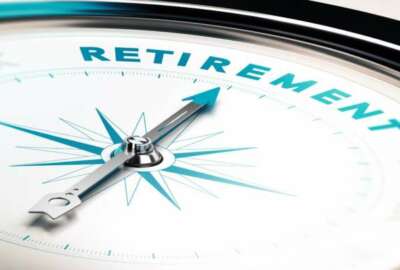Hubbard Radio Washington DC, LLC. All rights reserved. This website is not intended for users located within the European Economic Area.
Why it pays to think twice about paying off that mortgage before retirement
For many people thinking about retirement is axiomatic. It might be wise to think through this strategy a little more carefully.
For many people, thinking about retirement, is axiomatic. Pay off that mortgage on the house. It might be wise to think through this strategy a little more carefully. For why, the Federal Drive with Tom Temin spoke with private wealth advisor Thiago Glieger of RMG Advisors.
Interview Transcript:
Thiago Glieger Yeah. I think it’s one of those things that with most retirement planning, with most financial planning, what seems to be good for one family isn’t always the best thing for another family. And it’s kind of against the grain, because in medicine we think about, there’s a certain symptom that’s met with a specific treatment or medication or whatever. But in financial planning, we start to recognize it doesn’t quite work that way. So you have to be careful and look at your own circumstance very objectively. But what doesn’t help is the fact that all these pundits are often talking about, you can’t have any debt to your name. Liability is bad, bad, bad, bad. You need to pay off your mortgage before you head into retirement. And so people start to have this ingrained idea that they can’t retire until they do so, or going into retirement with a mortgage is a really bad thing.
Tom Temin But a mortgage has characteristics, and homeownership have characteristics that are different from other kinds of debt. And that’s the crux.
Thiago Glieger Yeah. I very loosely categorize debt into two different categories, one being good debt and then bad debt. Bad debt is that little plastic card everyone has and overuses. If you’re carrying debt on that, that’s not good. Good debt, you can use leverage to have your money grow it for your retirement, continue to allow it to support you, but you also get to have something like a house and live in it. And that house gets to appreciate in value. There are some tax properties that may be beneficial for you about having a mortgage. So it can be done correctly.
Tom Temin Because yes, the mortgage interest is deductible still under federal tax law. And so if you lose that you could have a greater tax liability from whatever income you have when you do retire.
Thiago Glieger That’s right. And I think a lot of people kind of forgot about the deductibility of the mortgage interest because standard deduction amounts have been so high. So unless they’re itemizing, they may not be getting that benefit. But I have to remind people that in two years, the law is set to go back to the original rule, where again, deductions will go down. And unless they change the law, that could be a very beneficial benefit for people again.
Tom Temin And people sometimes think, well, I’ll pay off the house, realize the appreciation. And there’s a pretty hefty capital gains avoidance that you have. Most normal people with normal houses will be under that limit and then buy a condo and then still have space I want and live rent free. Well, not so fast there either.
Thiago Glieger Right. And you always have to think about what are you trading? Or that liquidity. That paying off the full mortgage or just paying cash for another property and just having no mortgage at all, like something for a condo, for instance, you’re trading that liquid capital for illiquidity in real estate, as well as some reduced expenses, because then you don’t have that mortgage. But if you think about also what is the composition of a mortgage, it’s not entirely just the loan and the interest payment that you have. There’s really four parts to it. We call that Principal Interest Taxes and Insurance (PITI). So in even in your case when you’re describing a condo, somebody may not have a mortgage payment but you’re going to have HOA fees, you’re going to have condominium fees, you’re going to have the taxes in the insurance that you still owe each month.
Tom Temin Right. And sometimes a condo will come to you and say, guess what, we need a new roof. It’s $2 million, but we only have $500,000 in escrow for the roof. So everybody gets assessed up to up $10,000 out of nowhere to make sure the place doesn’t fall apart.
Thiago Glieger And that number is not out of the ordinary. I had a client just a few months ago come to us for $15,000 out of nowhere because, again, it was that situation where they needed to replace everything throughout the whole building. And it was a huge assessment.
Tom Temin Right. And especially in the age after the collapse of that condo in Florida, nobody wants to take a chance with a condo building if it’s more than two-storey high.
Thiago Glieger That’s right.
Tom Temin We’re speaking with Thiago Glieger, wealth advisor with RMG Advisors of Rockville, Maryland. So let’s presume then, that someone nevertheless wants to pay off their mortgage. What’s a good strategy for doing it? Where do you get the money to do it?
Thiago Glieger There’s a couple of questions I would want people to see themselves asking. And really the first is, if I do this, what are going to be the tax implications? If I’m going to take a large lump sum payment from my retirement accounts, that’s taxable like salary, just like ordinary income. And so the additional question here is beyond just the tax cost, how much potential future growth did you also cost yourself by not having this money anymore? Does this create any kind of risk in later retirement, because it’s a huge chunk of money that you’re not paying. So then other people may look at non retirement accounts like individual accounts, brokerage, joint, trusts. That comes with capital gains. So you have more control, and it is less taxes in ordinary income. And then sometimes people will say, well, you know what, this is what we have the Roth for. The Roth is totally tax free. It’s for surprise bills like this or something we can use, and we don’t have to worry about the tax. I don’t like people using the Roth for something like this, because the Roth is where you get all of your tax free growth. I’d like to see people using the Roth as kind of their growth vehicle for the future, so taking it and dumping it into a house may not be the best thing, but that’s usually the three options that people have.
Tom Temin Or you could win the lottery, I suppose. And then it doesn’t matter what happens. But if you do, then retain your house and the mortgage payments. If you can afford them, the question is if you can afford them before you retire, can you afford them after you retire that PITI payment? And that’s really the analysis you have to do, because it might be that you can totally handle it.
Thiago Glieger That’s right, exactly. And that’s the point here is I think a lot of people think they just can’t have a mortgage payment because their FERS and Social Security is not making up all of the income that they have from their salary. So they think, oh, well, our income is going down, so we must reduce our expenses. And that may not necessarily be true. If you’ve been a good saver throughout your career, then you might be sitting on a substantial chunk of change that you can use to continue to grow and invest for yourself. It continues to generate cash flow so you can keep making those mortgage payments, because you’re still generating a retirement paycheck at this point, it’s just not coming from the government.
Tom Temin I guess people might have the idea, well, we can partially pay it off with a chunk of the Roth or a chunk of the rainy day savings we have. But on the other hand, if you do that, you don’t really change your PITI payment, because the bank, the way they’ve rigged the mortgage system, pay all this interest until you pay off the principal.
Thiago Glieger And that’s why people really look to do a full payment, because you’re only free and clear of those interest payments. Once you clear that liability completely. And again, the challenge in doing these lump sum payments is that it affects something called your adjusted gross income. And not only do you pay higher taxes, potentially in that first year, you may have pushed yourself into a higher tax bracket for your first pension. So now there’s a bigger bite coming out of your annuity as well. This can also impact capital gains taxes. It could impact your Medicare Part B premiums. There’s a whole lot of other elements of a retirement plan that this one single move can have an impact negatively on. So you really have to be careful.
Tom Temin Most of the calculators online, where you plug in numbers to calculate whether you can retire or not or what your costs will be. There’s a lot they leave out, and one of the things they don’t have is tax. Because tax varies so widely by location, state you’re in municipality you’re in. This property taxes vary and then state taxes etc., etc.. Are there any sources of information to model what your taxes might look like? If I stay in my house, I pay this, that and the other for mortgage. Now here’s my income. That type of tax analysis.
Thiago Glieger Yeah. And the challenge Tom is needing to know a little bit about how the tax structure works. And I always encourage people, if you want to do some of this work, you can actually just go to the IRS website and look up the tax brackets and say, okay, if I generate this much in ordinary income, what is considered my marginal tax bracket, that’s the rate at which my next dollar is going to be taxed at. And this helps me to figure out if I take a lump sum from my TSP. That’s what my tax picture is going to look like. And then thinking about, all right, well, if I do this for next year, is that a year that’s going to be better for me because maybe I’m not working. Or do I want to do it this year because I have extra cash flow to be able to still contribute to the TSP, even on taking money out. So there’s some modeling that can be done. But you’re right, depending on how you file your taxes, depending on how you’re generating your income and retirement, which accounts you’re pulling the money from if you’re no longer earning a salary at this point, that’s all going to impact what that bottom line is for each individual family.
Tom Temin Yes, because you have to figure in your Social Security payments in there because that’s taxable since 1980. They’ve been taxing Social Security income, which kind of sounds absurd since you paid 6% tax on your income for your whole working life. And so did your employer or employers. And yet, it’s taxable.
Thiago Glieger Yeah, it’s tax on tax. And a lot of people don’t recognize that. They think Social Security is not taxed. But a good chunk of it is likely going to be taxed because you’ve got a first pension that essentially puts you in that you’ve already started with taxable income, which means your Social Security will be too.
Tom Temin All right. So bottom line then do some real analysis before you worry about paying off the mortgage on your house.
Thiago Glieger I really think it’s good to do some sort of financial modeling on this, because if you take out a huge swath of your money and now it belongs in a real estate property instead of your portfolio, what does that do to the longevity of your retirement plan. Do you still have sufficient liquid assets to be able to support your lifestyle for the rest of your life? And also understanding that there is some emotional component to this as well, if you are financially benefiting from keeping the mortgage, but it’s keeping you up, because you’re just stressed constantly, that’s not a successful retirement plan. And so I think taking an approach of understanding, I’ve shared with you the Venn diagram of what makes financial sense, of what really makes you happy. And retirement planning lives in the middle, because sometimes you have to do something that isn’t the squeezing the last drop of money out of the system, but it makes you incredibly happy and you’re fulfilled, and you’re happy to pass on a mortgage free property to your kids. That’s meaningful in a lot of different ways, too.
Tom Temin And if you do hang on to the house and you’ve got a mortgage and you’re in a reasonably sellable area, that’s always a God forbid option. You can always sell the house at some point and then realize that capital gains because it solves some other unanticipated problem. It may produce these new tax problems, but it solves whatever that came away that you never anticipated.
Thiago Glieger Right, exactly. You can create lines of credit against the house. You can sell the house, move to something smaller. And a lot of people will do that, especially as they phase their retirement because the house is too big. Maybe it doesn’t have everything they need to age in place, and so they find themselves moving somewhere else.
Copyright © 2024 Federal News Network. All rights reserved. This website is not intended for users located within the European Economic Area.
Tom Temin
Tom Temin is host of the Federal Drive and has been providing insight on federal technology and management issues for more than 30 years.
Follow @tteminWFED





